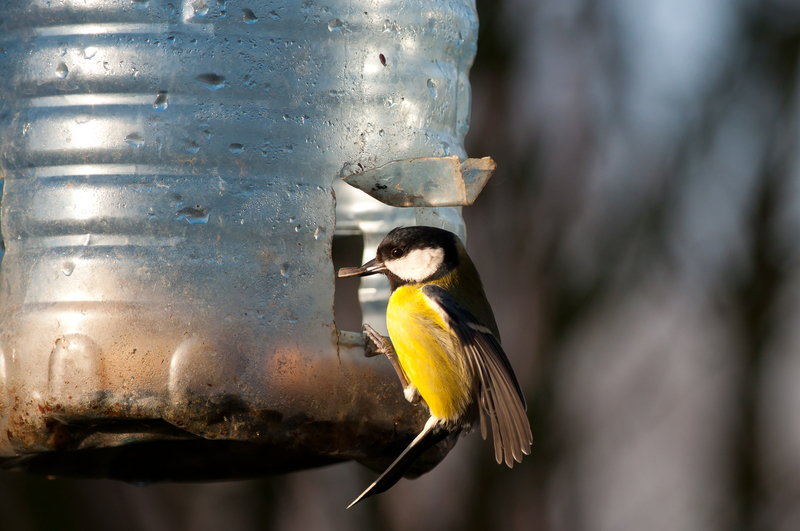Eco-Friendly Innovations: Bamboo Products
Posted on 07/01/2025
As the world grapples with environmental challenges and seeks sustainable solutions, bamboo has emerged as a true hero in the realm of eco-friendly innovations. Versatile, renewable, and resilient, bamboo offers a plethora of benefits that make it an ideal alternative to less sustainable materials. In this article, we will explore the various aspects of bamboo products, their advantages, and how they contribute to a more sustainable future.
Bamboo: The Wonder Plant
Bamboo is often referred to as a "wonder plant" due to its remarkable growth rate and diverse applications. Unlike trees, which can take decades to mature, bamboo can grow up to 91 cm (about 36 inches) in a single day under optimal conditions, making it one of the fastest-growing plants on Earth. Moreover, bamboo can be harvested in just three to five years, whereas hardwood trees can take up to 20 years or more to reach maturity.
Bamboo's rapid growth and renewability are not its only strengths. It is also incredibly resilient and can thrive in a variety of climates without the need for pesticides or fertilizers. Additionally, bamboo has a natural ability to sequester carbon dioxide, thus playing a role in mitigating climate change.

Eco-Friendly Bamboo Products
From household items to construction materials, bamboo products are gaining popularity due to their sustainability and functionality. Below are some common and innovative bamboo products that showcase the plant's versatility:
Bamboo Textiles
Bamboo fibers can be made into soft, durable, and breathable fabrics that are increasingly used in clothing, bedding, and towels. Bamboo textiles are generally more absorbent and have a natural antibacterial property, making them ideal for activewear and undergarments.
Bamboo Utensils and Kitchenware
Bamboo utensils, cutting boards, and other kitchenware are not only stylish but also sturdy and resistant to bacterial growth. Unlike plastic or metal, bamboo does not leach harmful chemicals when it comes into contact with food, making it a safer choice for culinary applications.
Bamboo Flooring
Bamboo flooring is an eco-friendly alternative to traditional hardwood floors. It offers similar durability and aesthetic appeal while being more sustainable due to bamboo's rapid growth cycle. Additionally, bamboo flooring is easy to maintain and can add a natural, elegant look to any space.
Bamboo Paper Products
Forest destruction due to paper production is a significant environmental issue. Bamboo paper products like tissues, toilet paper, and writing paper offer a sustainable solution. Bamboo pulp can be processed into paper with minimal chemical use, reducing the environmental footprint associated with traditional paper production.
Benefits of Bamboo Products
The growing popularity of bamboo products is not just a trend; it is a recognition of the numerous benefits they offer:
Environmental Benefits
Reduced Deforestation: As mentioned earlier, bamboo's rapid growth means that it can be harvested much more frequently than hardwood trees, reducing the pressure on forests and helping to combat deforestation.
Low Carbon Footprint: Bamboo plants absorb more carbon dioxide and release 35% more oxygen compared to an equivalent stand of trees, thereby aiding in carbon sequestration and air purification.
Minimal Chemical Use: Bamboo can grow without the need for pesticides and fertilizers, which are often required for other crops and can lead to soil and water pollution.
Economic Benefits
Cost-Effective: Due to its rapid growth and high yield, bamboo is generally more cost-effective than traditional wood. This affordability makes bamboo products accessible to a broader audience.
Job Creation: As the demand for bamboo products rises, so does the need for bamboo cultivation and processing, leading to job creation in rural areas where bamboo can be grown.
Health Benefits
Hypoallergenic: Bamboo fibers are naturally hypoallergenic, making them suitable for people with sensitive skin or allergies. This quality extends to bamboo bedding and clothing, which are soft and gentle on the skin.
Antibacterial Properties: Bamboo contains a natural substance called "bamboo kun" that gives it antibacterial and antifungal properties. This makes bamboo products more hygienic and less prone to odors, which is particularly beneficial for items like utensils, cutting boards, and clothing.
Sustainable Bamboo Cultivation Practices
One of the key factors that make bamboo a sustainable resource is its cultivation. Traditional agricultural practices can be harmful to the environment, but bamboo cultivation is different:
No Need for Replanting
Unlike trees that need to be replanted after being cut down, bamboo regenerates from its root system, allowing it to grow continuously without the need for replanting. This regeneration helps in maintaining soil health and preventing erosion.
Water Efficiency
Bamboo requires significantly less water compared to other crops, making it a water-efficient plant. This is especially important in regions where water scarcity is a pressing issue.
Minimal Land Use
Because bamboo grows so quickly and can be harvested frequently, it yields more usable material per square meter compared to traditional timber crops. This means that less land is required to produce the same amount of biomass.
Challenges and Considerations
While bamboo products offer numerous benefits, there are also challenges and considerations to keep in mind:
Processing Techniques
Some bamboo products, particularly bamboo fabrics, require chemical processing to convert the raw bamboo into usable fibers. It is crucial to ensure that this processing is done in an eco-friendly manner to maintain the sustainability of the final product.
Quality Concerns
Not all bamboo products are created equal. The quality of bamboo goods can vary significantly depending on factors such as the species of bamboo used, the cultivation methods, and the manufacturing process. Consumers should look for certifications and reputable sources to ensure they are purchasing high-quality, sustainable bamboo products.
Transportation Emissions
Bamboo is often grown in Asia, especially in countries like China and India. Transporting bamboo products to other parts of the world can result in a significant carbon footprint. To mitigate this, it is essential to support local bamboo cultivation where possible and consider the overall environmental impact of transporting these goods.

The Future of Bamboo Products
The future looks promising for bamboo products as innovations continue to emerge, making them even more sustainable and versatile. Here are some trends and advancements to watch for:
Advanced Material Science
Researchers are exploring new ways to enhance the properties of bamboo, such as increasing its strength and durability. These advancements could expand the use of bamboo into new sectors like automotive and aerospace industries.
Biodegradable Alternatives
With growing concerns about plastic pollution, bamboo-based bioplastics and biodegradable materials are being developed. These can offer sustainable alternatives to conventional plastics, reducing environmental impact.
Integration with Smart Technology
The integration of bamboo with smart technology is another exciting frontier. For instance, smart bamboo textiles could be developed to offer features like temperature regulation, moisture-wicking, and even health monitoring.
Conclusion
Bamboo products represent a significant step forward in our collective quest for sustainability. From their environmental benefits to economic and health advantages, bamboo offers a multifaceted solution to many of the challenges we face today. As innovations continue to evolve, the potential applications of bamboo are limitless, making it a cornerstone of eco-friendly innovations for years to come.
Whether you are an eco-conscious consumer, a business looking for sustainable materials, or simply someone interested in the future of green technology, bamboo products deserve your attention and support. By choosing bamboo, we can all contribute to a more sustainable and harmonious world.
Latest Posts
Recycling for Environment Health
Start Your Plastic-Free Kitchen Journey
Recycling Polystyrene for a Greener Earth






